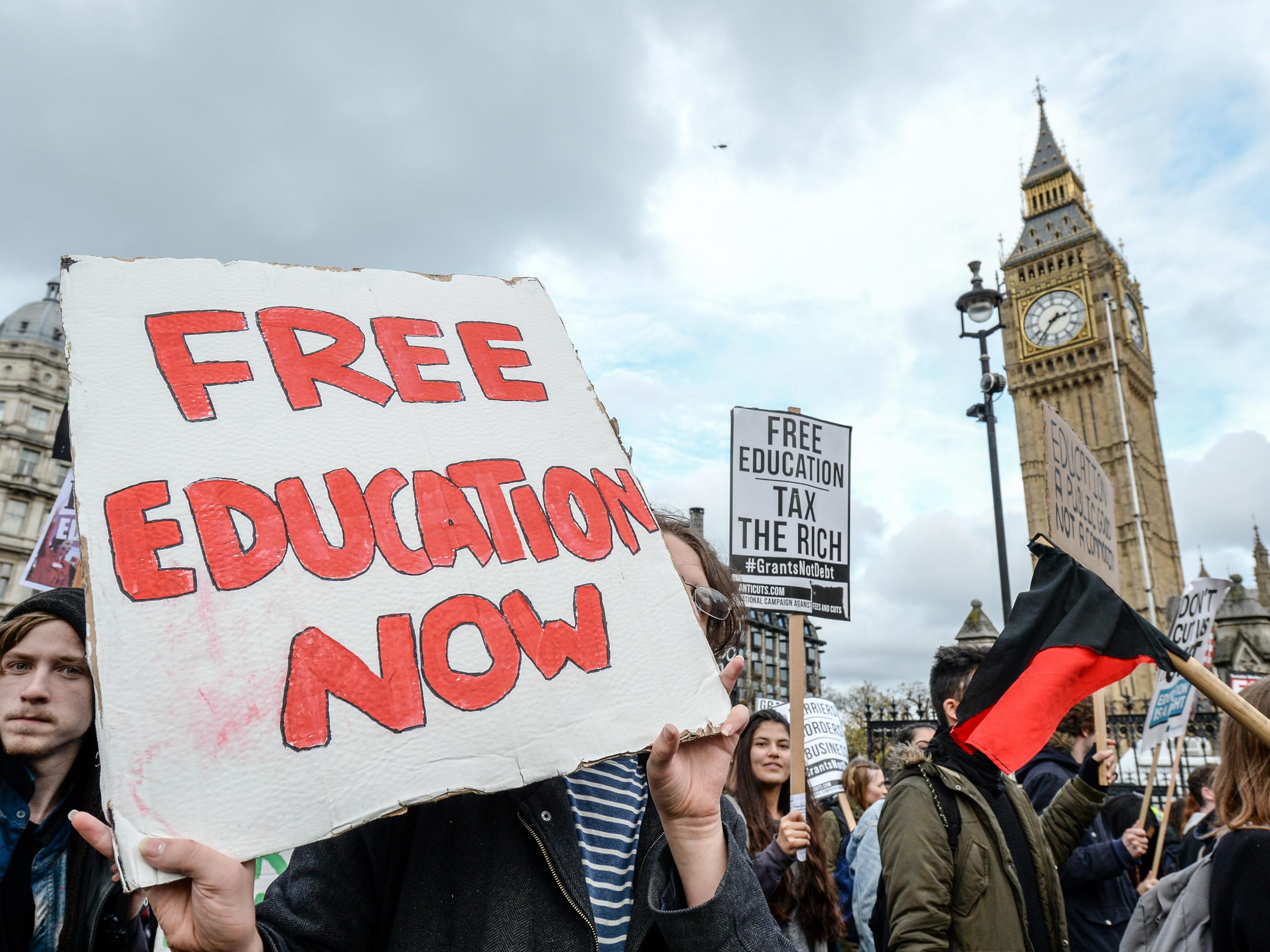Labour promises to reinstate student grants and EMA if elected
Party says move would be paid for by raising corporation tax by less than 1.5 per cent

Your support helps us to tell the story
From reproductive rights to climate change to Big Tech, The Independent is on the ground when the story is developing. Whether it's investigating the financials of Elon Musk's pro-Trump PAC or producing our latest documentary, 'The A Word', which shines a light on the American women fighting for reproductive rights, we know how important it is to parse out the facts from the messaging.
At such a critical moment in US history, we need reporters on the ground. Your donation allows us to keep sending journalists to speak to both sides of the story.
The Independent is trusted by Americans across the entire political spectrum. And unlike many other quality news outlets, we choose not to lock Americans out of our reporting and analysis with paywalls. We believe quality journalism should be available to everyone, paid for by those who can afford it.
Your support makes all the difference.The Labour party has promised to reinstate the controversially scrapped student maintenance grants and the Education Maintenance Allowance (EMA) if elected in the next general election.
Labour said the measures would support more than one million young people and increase the number of students from poorer backgrounds continuing in education.
The party said the move would be paid for by raising corporation tax by less than 1.5 per cent.
In the 2015 Budget, former chancellor George Osborne announced the Government’s intention to abolish maintenance grants and replace them with increased maintenance loans, a change which campaigners argued would have an impact on student perceptions of the value of higher education.
University students from families with a household income of £25,000 or less were entitled to a grant to cover living costs of £3,387 per year. This grant then decreased as the family’s income increased and came to an end when a household earned more than £42,620.
Under the cuts those students who live away from home outside of London will receive a higher loan amount of up to £8,200, while those in the capital will get up to £10,702.
This will then all have to be repaid under the same terms as existing loans once a graduate earns more than £21,000 per year.
The Government was heavily criticised earlier this year for “frighteningly and undemocratically” pushing the change through a small committee most people had never heard of, consisting of just 18 MPs and at a debate which lasted just 90 minutes.
At the time Sorana Vieru, National Union of Students vice president, labelled the move as “disgraceful” and said it “basically punishes poorer students simply for being poor".
The Education Maintenance Allowance (EMA) was withdrawn by the Conservative-Liberal Democrat coalition in 2011. The allowance of up to £30 a week was paid to those aged between 16 and 18 from poorer families to help them stay in education.
It was replaced with a bursary scheme that gives some of the money to schools and colleges. At the time it was reported that the new scheme was worth less than half of the old EMA.
Angela Rayner, Labour’s shadow Education Secretary, said: “The Labour Party is committed to investing in our young people. It is only by investing in education that we can ensure that all of our young people, whatever their background, are able to succeed in whatever they aspire to.
“This policy will have a real and meaningful impact on the lives of hundreds of thousands of students.
“Bringing back EMA, which the independent Institute for Fiscal Studies said improves both participation and attainment among 16-18 year olds, would benefit three quarters of a million students.
“Reversing the Government's replacement of the student maintenance grant with loans would help over half a million students from low and middle income students to cover their living costs at university.
“When we can help improve the education of over a million young people with a small increase in corporation tax, it is an investment we would be foolish not to make."
The number of state-educated students going to university and colleges fell by four percentage points in the first year tuition fees were increased to £9,000, recent data found.
Official new figures recently released by the Department for Education revealed the drop from 66 per cent to 62 per cent between the 2012/2013 and 2013/2014 academic years was part of a nine percentage point drop in state school pupils carrying on into higher education since 2009/2010.
Additional reporting by Press Association
Join our commenting forum
Join thought-provoking conversations, follow other Independent readers and see their replies
Comments